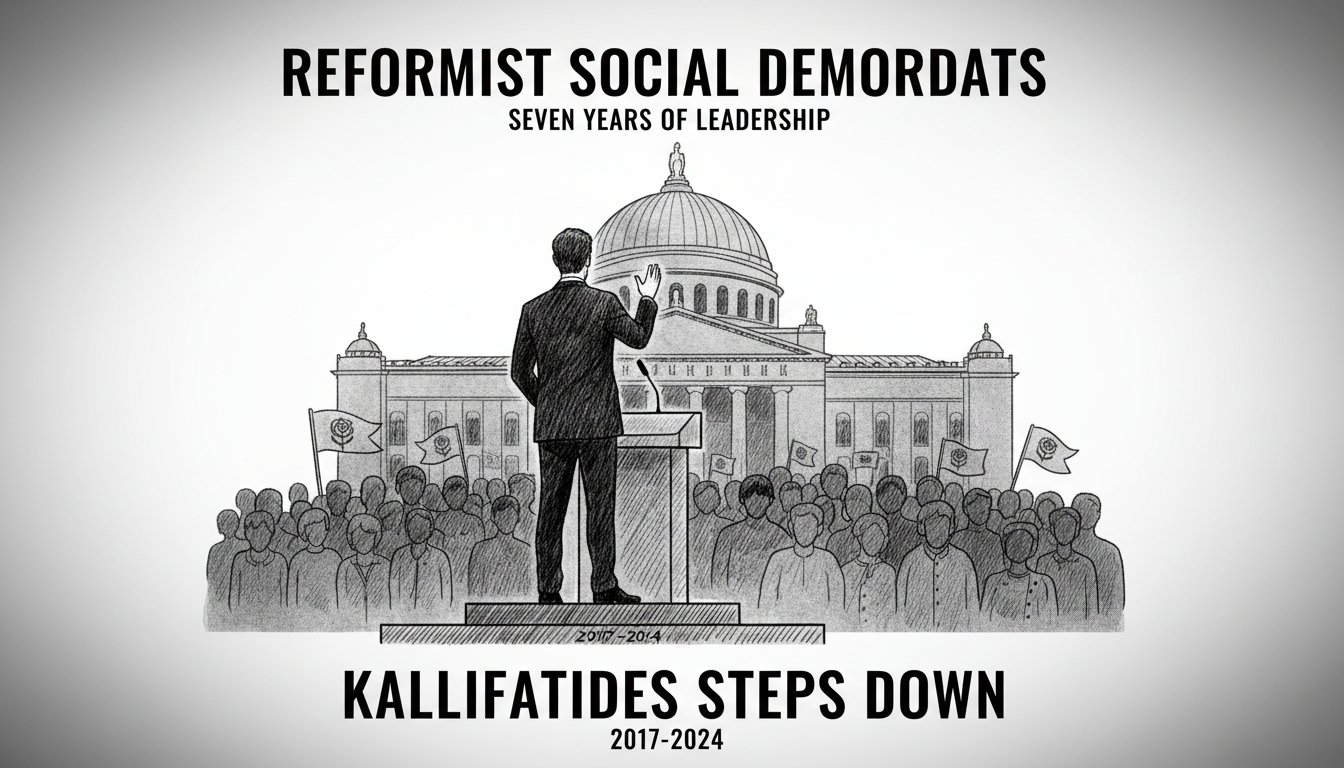The leader of Sweden's Reformist Social Democrats movement has announced his resignation after seven years at the helm. Markus Kallifatides will step down from his position during the organization's annual meeting in February, though he will maintain his seat in parliament.
The Reformist Social Democrats emerged as a left-leaning faction within Sweden's Social Democratic Party in February 2019. The group positioned itself as a progressive voice advocating for policy changes within the traditional social democratic framework. Key founding members included outspoken union leader Daniel Suhonen and former MP Sara Karlsson, who had left her parliamentary position following the Social Democrats' stricter migration policies.
Kallifatides, a trade union researcher who later entered parliament as a Social Democrat, reflected on his tenure. "I believe we have clarified social democracy as a reformist movement," he stated in his announcement to members about his upcoming departure.
One of the Reformists' key achievements that Kallifatides highlighted was what he described as the "crystal clear" opposition within social democracy to profit-making in tax-funded welfare services. This stance represents a fundamental principle for the left-wing faction, which has consistently argued against privatization in Sweden's extensive welfare system.
The group's initial platform seven years ago centered on dismantling Sweden's budget regulations and abandoning the government's surplus target for public finances. Last year, parliament's parties agreed to scrap the surplus target, moving instead toward a balanced budget goal starting in 2027. However, at the Social Democratic Party congress in 2025, no provisions were made for deficit targets, though the party did open the door to some borrowing for specific investments.
When asked whether the outcome represented a defeat for the Reformists, given they didn't achieve all their objectives, Kallifatides acknowledged, "Have we achieved everything the Reformists wanted? No, there are things left to do."
The leadership transition comes at a critical time for Sweden's political landscape. The Reformist Social Democrats have served as an important internal pressure group within the larger Social Democratic Party, pushing for more progressive economic policies and maintaining traditional social democratic values amid changing political currents.
This internal party dynamic reflects broader tensions within European social democracy between more centrist approaches and traditional left-wing positions. The Reformists' emphasis on maintaining tax-funded welfare services without private profit participation represents a key ideological battleground in contemporary Swedish politics.
Kallifatides' departure raises questions about the future direction of the Reformist faction and its influence within the broader Social Democratic Party. The movement will need to select new leadership that can effectively advocate for its platform while navigating the complex realities of parliamentary politics and coalition building.
The upcoming leadership election will test whether the Reformists can maintain their distinctive voice within Swedish social democracy or whether they will gradually be absorbed into the party mainstream. Their ability to influence policy on welfare, budget rules, and economic direction will depend significantly on who succeeds Kallifatides and how effectively they can build alliances within the party structure.

